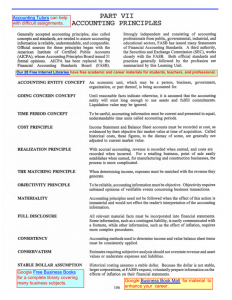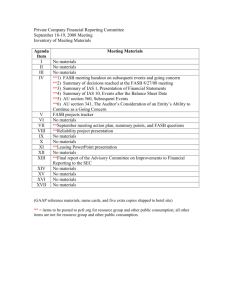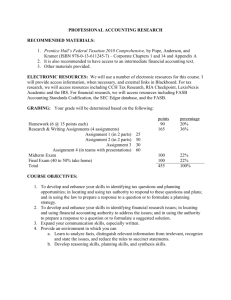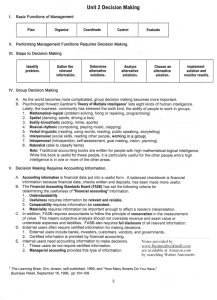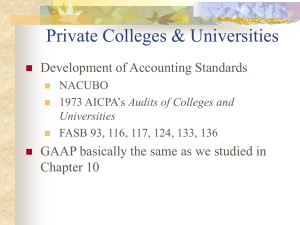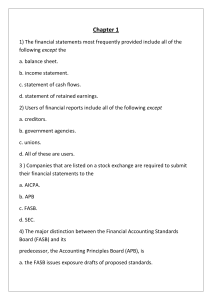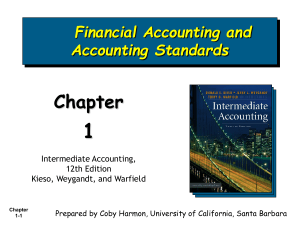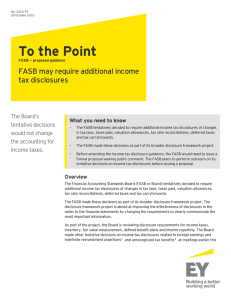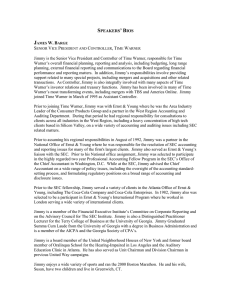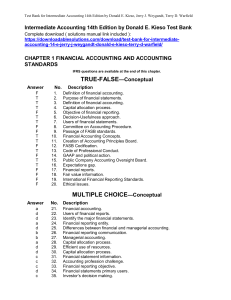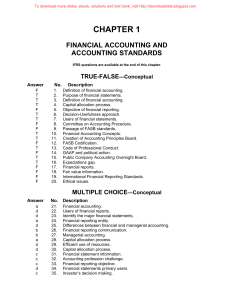ACCOUNTING PRINCIPLES
advertisement
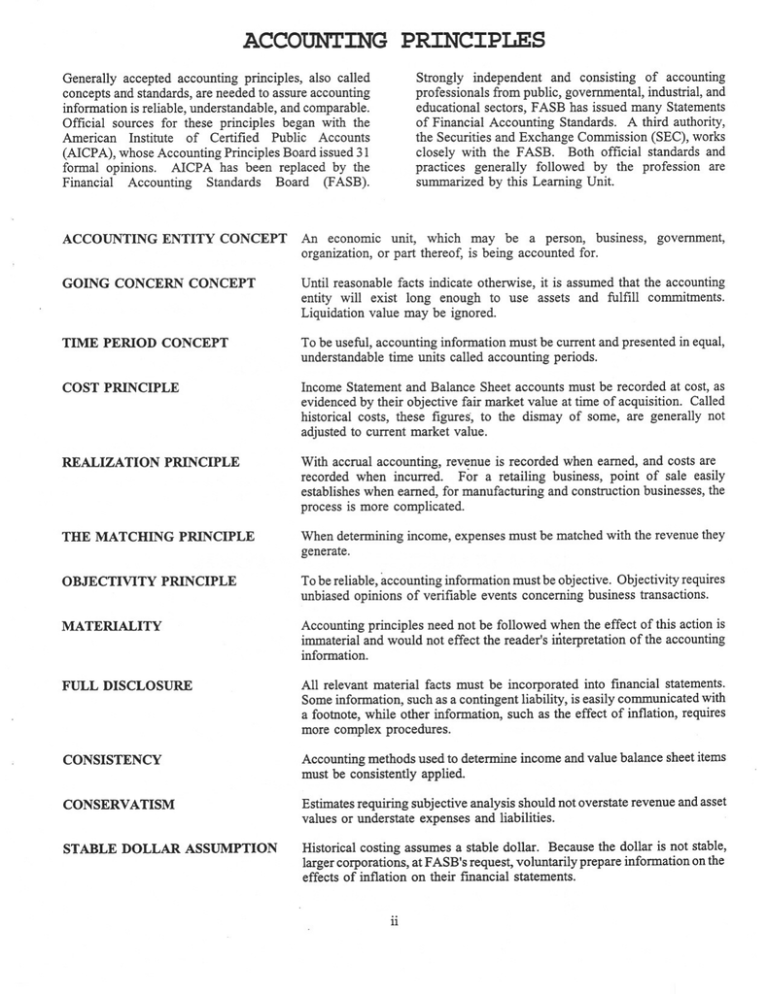
ACCOUNTING PRINCIPLES Strongly independent and consisting of accounting professionals from public, governmental, industrial, and educational sectors, FASB has issued many Statements of Financial Accounting Standards. A third authority, the Securities and Exchange Commission (SEe), works closely with the FASB. Both official standards and practices generally followed by the profession are summarized by this Learning Unit. Generally accepted accounting principles, also called concepts and standards, are needed to assure accounting information is reliable, understandable, and comparable. Official sources for these principles began with the American Institute of Certified Public Accounts (AICPA), whose Accounting Principles Board issued 31 formal opinions. AICPA has been replaced by the Financial Accounting Standards Board (FASB). ACCOUNTING ENTITY CONCEPT An economic unit, which may be a person, business, government, organization, or part thereof, is being accounted for. GOING CONCERN CONCEPT Until reasonable facts indicate otherwise, it is assumed that the accounting entity will exist long enough to use assets and fulfill commitments. Liquidation value may be ignored. TIME PERIOD CONCEPT To be useful, accounting information must be current and presented in equal, understandable time units called accounting periods. COST PRINCIPLE Income Statement and Balance Sheet accounts must be recorded at cost, as evidenced by their objective fair market value at time of acquisition. Called historical costs, these figures', to the dismay of some, are generally not adjusted to current market value. REALIZATION PRINCIPLE With accrual accounting, revenue is recorded when earned, and costs are recorded when incurred. For a retailing business, point of sale easily establishes when earned, for manufacturing and construction businesses, the process is more complicated. THE MATCHING PRINCIPLE When determining income, expenses must be matched with the revenue they generate. OBJECTIVITY PRINCIPLE To be reliable, accounting information must be objective. Objectivity requires unbiased opinions of verifiable events concerning business transactions. MATERIALITY Accounting principles need not be followed when the effect of this action is immaterial and would not effect the reader's interpretation of the accounting information. FULL DISCLOSURE All relevant material facts must be incorporated into financial statements. Some information, such as a contingent liability, is easily communicated with a footnote, while other information, such as the effect of inflation, requires more complex procedures. CONSISTENCY Accounting methods used to determine income and value balance sheet items must be consistently applied. CONSERVATISM Estimates requiring subjective analysis should not overstate revenue and asset values or understate expenses and liabilities. STABLE DOLLAR ASSUMPTION Historical costing assumes a stable dollar. Because the dollar is not stable, larger corporations, at FASB's request, voluntarily prepare information on the effects of inflation on their financial statements. ii
